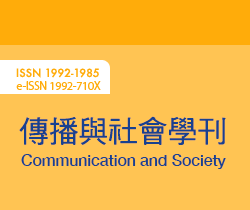 |
| January 2011 |
 |
15 |
|
| 研究論文Research Articles |
| 論中國語境下的危機事件與媒介制度變遷 的內在關聯—以汶川地震和群體性事 件為例 |
| The Internet Connection between Crisis and the Media System Change in Chinese Context—Cases Study of the Wenchuan Earthquake and the Group Events |
|
|
|
 |
 (2858)
(2858)
|
| 作者 |
潘祥輝 |
| Author |
Xianghui PAN |
| 關鍵詞 |
危機事件、汶川地震、群體性事件、媒介制度 |
| Keywords |
crisis, Wenchuan Earthquake, group event, media system |
| 摘要 |
危機事件是指對人類生存或社會系統運行產生重要威脅,並在種種不確定情況下需要對此作出反應或決策的事件。在中國的社會轉型過程中,危機事件是如何促成了中國的媒介管理、中國媒介組織自身的運行規則的演變?危機狀態下的媒介制度演變遵循着一種甚麼樣的內在邏輯?本研究選取汶川地震和群體性事件進行分析,運用案例研究法和文獻資料分析法,呈現兩種類型的危機事件與中國媒介制度變遷的內在關聯。研究發現:危機事件會對打破政府及媒體的常規運作,啟動制度創新,其結果會受到新的評估最終固定下來。在媒體與政府的博弈格局中,政府的偏好是決定媒介政策的關鍵變數,這種偏好是以「利益評估」為基礎的。在分權體制下,地方政府與中央政府的偏好會有所不一致,這為媒體的自主制度創新提供了空間。但隨着政府經驗的累積,其對危機事件的管理逐漸制度化、常規化,干預時機也前移至預防階段,媒體政策通常成為政府危機公關的衍生物。政府、媒體與公眾的共識及利益的重合度是決定媒介制度變遷能否固定下來的關鍵變數。 |
| Abstract |
Crisis refers to those events that threaten human survival and the operation of the social system and that should be responded to and dealt with under all kinds of uncertainties. During the process of a changing society in China, how does a crisis promote the media’s evolution, including media management systems and the operational rules of media organizations? What inner logic do the media systems abide by when they are evolving during crises?
Based on the causes leading to a crisis, the crisis can be divided into two categories, natural and man-made. In this research, the Wenchuan Earthquake and group events were chosen as two typical crises to be analyzed. The case study and literature analysis method were used. This research tries to find the inner relationship and the differences and commonality between these two types of crises and the Chinese media’s system evolution.
Through the analysis, we found the following: Crises damage the normal operating condition of the government and the media, and new systems will be created. In regards to the government and the media, the former’s preference is based on the benefit assessment as the key variable that decides the latter’s policy. In a system of power decentralization, the preferences among the local governments and the central government differ, which provides the media limited free room to innovate independently.
In a crisis, the media has possibilities to acquire some room to innovate and, to some extent, its tutelage function will be embodied as well. However, based on accumulated experiences in dealing with crises, the governments’ crisis management is gradually institutionalized and routinized. They also move the timing of intervention crisis to the prevention stage. So the media’s policies are always turned into the derivatives of the governments’ public relations activities. No matter the kind of crisis, the consensus and the degree of coincidence of interests among the governments, media, and the public are the key variables in deciding the changes of the media system.
本文引用格式
潘祥輝(2011)。〈論中國語境下的危機事件與媒介制度變遷的內在關聯─以汶川地震和群體性事件為例〉。《傳播與社會學刊》,第15 期,頁33–70。
Citation of this article:
Pan, X. (2011). The Internet Connection between Crisis and the Media System Change in Chinese Context—Cases Study of the Wenchuan Earthquake and the Group Events. Communication & Society, 15, 33−70.
|
|
|
 |
| No.74 2025 October |
 |
| No.73 2025 July |
 |
| No.72 2025 April |
 |
| No.71 2025 January |
 |
| No.70 2024 October |
|
